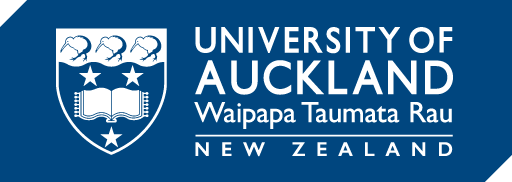by Mark C. Wilson | Oct 26, 2016
Speaker: Bettina Klaus
Affiliation: University of Lausanne
Title: Non-Revelation Mechanisms for Many-to-Many Matching: Equilibria versus Stability
Date: Monday, 31 October 2016
Time: 4:00-5:00 pm
Location: 260-307
We study many-to-many matching markets in which agents from a set A are matched to agents from a disjoint set B through a two-stage non-revelation mechanism. In the first stage, A-agents, who are endowed with a quota that describes the maximal number of agents they can be matched to, simultaneously make proposals to the B-agents. In the second stage, B-agents sequentially, and respecting the quota, choose and match to available A-proposers. We study the subgame perfect Nash equilibria of the induced game. We prove that stable matchings are equilibrium outcomes if all A-agents’ preferences are substitutable. We also show that the implementation of the set of stable matchings is closely related to the quotas of the A-agents. In particular, implementation holds when A-agents’ preferences are substitutable and their quotas are non-binding.
A copy of the paper to be presented is available for downloads here
Everyone welcome!
by Mark C. Wilson | Jan 9, 2015
Speaker: Konstantin Sorokin
Affiliation: Higher School of Economics (Moscow)
Title: Candidate utility invariance under stochastic voting
Date: Friday, 16 Jan 2015
Time: 3:00 pm
Location: Room 412, Science Centre (303)
Previous work by the authors (Zakharov, 2012, Sorokin and Zakharov, 2014) demonstrated
that the shape of the functions that translate vote shares into payoffs does have an effect on
the equilibrium actions of candidates in two-candidate voting games with a finite number of
stochastic voters. In particular, we have shown that the „mean voter theorem‰ that predicts
candidates choosing identical policy positions in fact holds only for a small set of candidate
utility functions (a set that includes both winner-take-all and proportional utility).
In this work, we take our research one step further. First, we show that, as the number of
voters becomes large, the outcome of an electoral competition game is invariant with respect
to the candidate utility functions. Second, we show that this invariance holds only if the votes
are cast independently. If there is, say, a common shock to the utilities that all voters receive, then candidate payoffs will affect the equilibrium even in the limiting games when the number of voters is infinite.
Everyone welcome!
by Mark C. Wilson | Dec 16, 2014
We managed to get video recordings of almost all of the presentations. These are available to view on the CMSS YouTube channel or via the CMSS Google plus page.
We also have a video of the Seelye public lecture by Matt Jackson.
In the week before the workshop, Matt Jackson was interviewed by Katherine Ryan on Nine to Noon. You can listen to, or download, the interview from Radio New Zealand National website.
by Mark C. Wilson | Oct 7, 2014
9th & 10th December 2014, University of Auckland, New Zealand
Attendance at the workshop is free of charge and includes the workshop dinner. Yet, as places are limited, we require registration via the workshop webpage.
The deadline for registration is 17th October.
This year’s theme is diffusion in social networks, but submissions on any aspect of mathematical social science or complex networks are welcome.
Keynote presentations are:
* Matt Jackson (Stanford University) – Identifying Central Individuals in Networks and Diffusion Processes
* Damon Centola (University of Pennsylvania) – The Origins of Social Order: New Theory and Experiments
Financial assistance for travel costs is available for students wishing to attend the workshop. Please contact Dion O’Neale (d.oneale@auckland.ac.nz) for more information.
For more information about the workshop, please see the website listed above or contact one of the organisers:
Patrick Girard (Philosophy) p.girard@auckland.ac.nz
Dion O’Neale (Physics) d.oneale@auckland.ac.nz
Mark C. Wilson (Computer Science) mc.wilson@auckland.ac.nz
by Mark C. Wilson | Sep 13, 2014
Title:
Overview of the Centre for Mathematical Social Sciences
Speaker:
Mark Wilson, Computer Science and Centre for Mathematical Social Sciences (accompanied by Valery Pavlov)
Abstract:
The Centre for Mathematical Social Sciences at the University of Auckland is sometimes confused with COMPASS by outsiders. Although our structure, research methods and levels of funding have been quite different, it does seem that more collaboration could be explored.
I will give a quick overview of CMSS and discuss a few current research projects.
Date, Time, Venue: Friday September 12, 1-2, COMPASS meeting room (second floor, Fale Pacifika building)

Recent Comments